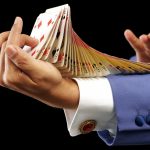[ad_1]
WASHINGTON — A Supreme Court justice expressed concern Tuesday about the Justice Department’s use of obstruction of justice charges against those involved in the Jan. 6 attack on the U.S. Capitol.
The case may be related to the election interference prosecution of former President Donald Trump.

The justices heard an appeal by defendant Joseph Fischer, a former police officer who is seeking to dismiss a charge that he obstructed the formal process of Congress’s certification of Joe Biden’s election victory. The program was disrupted by a group of Trump supporters.
The law criminalizes the conduct of obstructing, influencing or preventing any official proceedings. Conviction can result in up to 20 years in prison.
The court, with a 6-3 conservative majority, has in the past been skeptical of prosecutors’ claims for broad application of criminal provisions.
Some justices expressed similar sentiments during Tuesday’s arguments, asking whether the statute could be used to prosecute peaceful protesters, including those who sometimes disrupt Supreme Court proceedings.
“Does a sit-in that disrupts a trial or enters a federal courthouse qualify?” conservative Justice Neil Gorsuch asked. “Does a heckler in the audience today or during the State of the Union address qualify? Does sounding a fire alarm before a vote qualify for 20 years in federal prison?”
Another conservative justice, Samuel Alito, raised similar questions during a lengthy exchange with Solicitor General Elizabeth Prelogar, noting that the protests at the Supreme Court No one has been legally charged.
“I think it’s completely different than if they stormed the court, stormed the Supreme Court police and asked the judges and other participants to flee for safety,” Preloga said.
“What happened on January 6 was very, very serious, and I’m not going to equate that with that,” Alito responded. “But we need to find out what the outer scope of this statute is based on your interpretation.”
Trump himself faces charges of violating the same law, as well as conspiracy to obstruct an official proceeding. Those are among four charges he faces in an election interference case in Washington, along with a hush-money prosecution currently underway in New York.
Tuesday’s hearing comes just a week after the Supreme Court hears Trump’s request to overturn election interference charges based on his assertion of presidential immunity. Justice Clarence Thomas attended arguments Monday after being absent for unexplained reasons.
Both Fisher and Trump have said obstruction of justice does not apply to the conduct they are accused of, meaning the charges should be dropped.
Fisher faces seven criminal charges, only one of which is the focus of the Supreme Court case. He also faces charges of assaulting a police officer and entering a restricted building.
Conservative Justice Brett Kavanaugh questioned why the Justice Department needed to use the obstruction of justice charge against Fisher, noting that he faces six other charges.
“Why isn’t this six count good enough?” he asked.
Likewise, Judge Clarence Thomas, whose wife, Ginni Thomas, a conservative activist who supports Trump’s efforts to challenge the election results, asked prosecutors if they had used the statute to “Violent protests” that have disrupted proceedings in the past.
“I can’t give you an example of enforcing this in a situation where people violently stormed a building to stop official proceedings,” Preloga said.
Liberal Justice Sonia Sotomayor appeared to side with Preloga on this point.
“We’ve never had this before … people trying to violently stop proceedings. So I’m not sure what the lack of history proves,” she said.
Prelog tried to convince the judge that prosecutors would not charge people with obstruction of justice without careful consideration.
She said that while the total number of defendants in the Jan. 6 case was about 1,350, only 350 were charged with obstructing official proceedings. She added that the average sentence for someone charged solely with felony obstruction of justice is 26 months.
Federal prosecutors sought enhanced sentences for the defendants convicted of obstruction of justice on Jan. 6, but Prelogar focused on the judge’s actual sentence.
The provision was enacted in 2002 as part of the Sarbanes-Oxley Act, which was passed in the wake of the Enron accounting scandal.
Prosecutors say Fisher joined a crowd that stormed the Capitol from the east side on Jan. 6. “Charge!” he shouted over and over, then yelled: “Fuck you!” as he rushed forward toward the police line, the government said.
He and other thugs then fell to the ground. Video released as evidence in other trials on Jan. 6 showed him trying to appeal to police protecting the Capitol, telling them he was also a police officer after other rioters lifted him up.
Fisher’s attorneys say the law should be limited to situations involving tampering with physical evidence, which they believe is what the law is designed to address.
A ruling in Fisher’s favor could benefit Trump, although that’s not guaranteed. Prosecutors in Trump’s case say that even if Fisher wins, Trump’s actions will still be affected by a narrow interpretation of the statute.
[ad_2]
Source link









GIPHY App Key not set. Please check settings